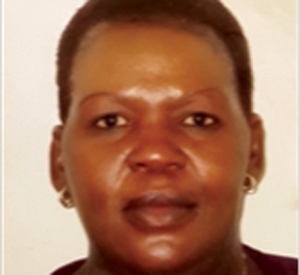
I AM sure I speak for all parents and caregivers when I say we are grateful that children have, for now, been spared direct COVID 19 infection. The crisis created by the pandemic is, however, having a damaging effect on children’s well-being by worsening pre-existing vulnerabilities. The pandemic itself and at times the response, such as lockdowns, are having negative socio-economic impacts on families and exposing children to possible abuse.
A lot has been said about how lockdowns are affecting the economy, which is all true, but we do need to remind one another about how when the lockdown is affecting children. Measures to prevent the spread of COVID-19 have impeded children’s access to education, can expose children to online abuse, can result in increased physical abuse and has taken away the early warning mechanism of schools.
Impeded access to education
We are currently in a lockdown and as we battle to control the slow, but rising COVID-19 infection cases, we do not have a definite date for the opening of schools.
Some elite schools have started online lessons, but it’s obvious the majority of children will automatically be excluded from this method of learning. With the spiralling cost of internet connection, even those with access to the requisite gadgets will not be able to sustain online learning.
Most rural children will just be left out. They will lose months of schooling and the teachers who have to attend to large classes might not be able to adequately support them to catch up.
If we don’t think carefully and deeply about how these vulnerable learners can be supported to reach their potential, we might have a whole generation whose learning outcomes were affected by COVID-19. As a nation that is already dealing with other vulnerabilities such as poverty, we can’t afford that drawback.
Online abuse
- Chamisa under fire over US$120K donation
- Mavhunga puts DeMbare into Chibuku quarterfinals
- Pension funds bet on Cabora Bassa oilfields
- Councils defy govt fire tender directive
Keep Reading
Children who have access to the internet are spending more time online and this might expose them to inappropriate images and even sexual exploitation by online predators. Increase in abuse
Closer home, there are increasing reports of child abuse in one form or another. Some of this abuse is taking the form of exposing children to violence between adults and others violence on children.
One such form is a report in the Masvingo Mirror of a Chiredzi man who burnt his five-year-old daughter’s hands for eating his meal of sadza for the previous evening.
Apparently, the man, for some reason had not eaten his meal the previous evening. The child, the following morning, ate the meal. The man is reported to have been so angry that he turned the stove on and forced the five-year-old to put her hands on the hot stove.
As further punishment he is reported to have tied the child’s hands at the back. He is said to have accused the child of eating food from the neighbours. As I read this story, I realised the risk that children are in with the lockdown. What is apparent is that food really has to be scarce for a father in a household to keep track of cooked food from the previous evening.
In Shona, this food is called munya and traditionally would be eaten by the children as breakfast.
Under normal circumstances, the child’s behaviour of eating the sadza would be quite acceptable.
These are, however, not normal circumstances. Families are struggling to put adequate food on the table and the weakest are suffering.
The fact that in the story the child is also being punished for eating food from neighbouring houses is an indication that the food at home is not enough. The child’s behaviour is a cry for help. Unfortunately, this cry is met with cruel and inhuman punishment from the very person who is supposed to protect the child, the father.
Flawed parenting
Zimbabwean courts have ruled that corporal punishment is illegal in both private and public spaces, yet children continue to be subjected to physical violence from their parents and caregivers in the name of discipline.
This is because in any community there will be abusive parents and caregivers who descend on the weak when things get difficult in life.
While the normal thing even in animals is that the parent will prioritise feeding their offspring over themselves, there will be flawed parenting that believes adults must get the best of everything, including food.
Prior to the lockdown, violence against children was already high at 26,4% as cited in the 2019 Zimbabwe Violence Against Children Report, with adults going through lockdown-related stresses, incidences of violence against children are likely to rise and children might be left with permanent scars both physically and psychologically.
For some children, schools serve more purposes than just learning. It is in some cases the only source of a decent meal; it also acts as a mechanism for early warning where there is child abuse. With schools closed, some children might be stuck in abusive situations with no means of asking for help.
As a nation we do have a duty to fight the COVID-19 virus but as parents and caregivers we do have to put child protection at the centre of our COVID-19 response.
Sibusisiwe Marunda is the Regional Psychosocial Support Initiative Zimbabwe country director. She writes in her personal capacity and can be contacted on [email protected].











